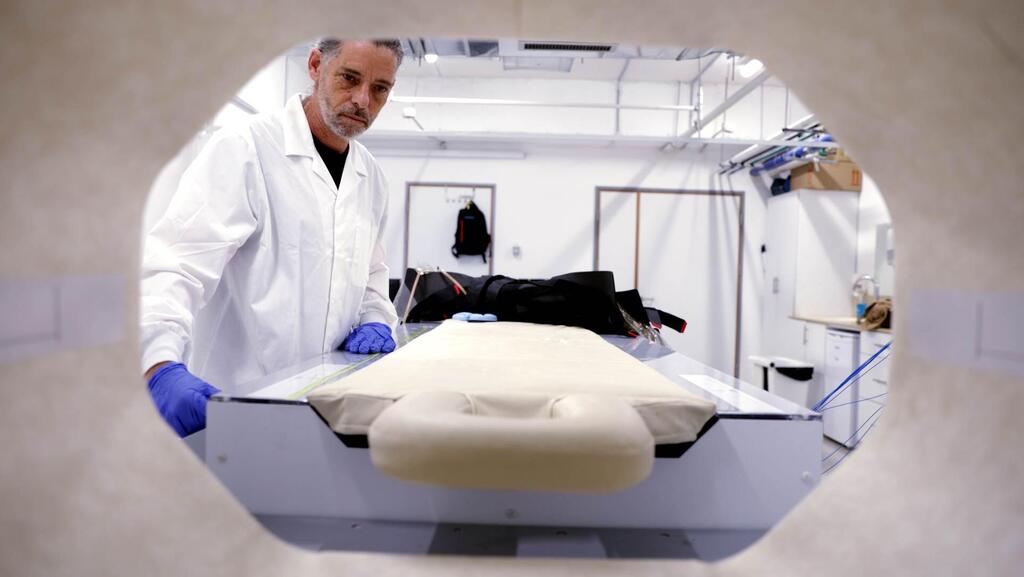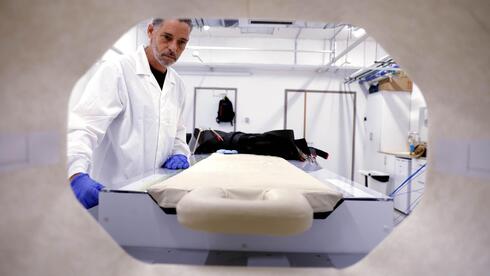
The startup that wants to redefine stage four cancer
By heating tumors at the cellular level, New Phase hopes to transform treatment outcomes.
Imagine a world where a patient diagnosed with metastatic cancer continues to work, travel, and enjoy life, perhaps for another ten or fifteen years. A world where the word metastasis no longer signals the end, but marks another manageable stage of illness, like diabetes or hypertension.
In the heart of Petah Tikva’s industrial zone, a small Israeli company called New Phase is pursuing that vision. The startup is developing technology designed to prevent the spread of cancer at the metastatic stage, the phase responsible for most cancer-related deaths, and one that medicine has yet to conquer.
“The idea was born after the mother of my partner, Dr. Rafi Hof, was diagnosed with lung cancer,” says Ofer Shalev, co-founder and CEO of New Phase. “We asked ourselves how we could find a way to extend patients’ lives without harming their quality of life.”
New Phase’s approach is built on a surprising biological insight: cancer cells are unusually sensitive to heat.
“Cancer cells collapse at temperatures of 41–45°C, while normal cells can tolerate up to 55°C,” explains Shalev. “If we heat tissue to 50°C, the cancer cells die, but the healthy ones survive.”
The challenge, of course, is how to heat only the cancer cells. New Phase’s answer lies in nanoparticles, microscopic carriers made of iron that are injected intravenously. Once in the bloodstream, these particles heat up when exposed to a magnetic field.
The company’s researchers exploited another quirk of tumor biology: the abnormal blood vessels that feed cancerous growths. “When we inject the nanoparticles, they leak only into cancerous tissue, not into healthy organs,” Shalev explains. “In normal organs, the particles pass through. In tumors, they accumulate.”
To prevent overheating that could harm nearby tissue, the team devised a safety mechanism based on a physical principle known as latent heat.
“Think of a candle,” Shalev says. “Its flame is about 400 degrees, but the melted wax is only 70. Inside our particles, there’s a special material that stops heating once it reaches 50 degrees, and no higher.”
Related articles:
About four hours after the nanoparticles are administered, patients enter a custom imaging machine developed by New Phase, similar to an MRI scanner, but designed to produce a magnetic field that gently heats the particles inside the body.
“The procedure takes about half an hour, and the patient can go home immediately afterward,” says Shalev. “The imaging machine itself is our invention. There’s nothing like it anywhere in the world.”
The technology is currently being tested in a Phase I clinical trial at Beilinson Hospital. Though the goal at this stage is primarily to assess safety and toxicity, the early results are promising.
“Among the 26 patients treated so far, we’ve seen no toxicities or side effects,” Shalev reports. “In about half of them, the disease remained stable for 30 days, no new tumors appeared.”
Maier Fenster, director of medical device operations at the Ehrlich Group, which supports New Phase, says the company’s integrated approach could give it a lasting edge. “The combination of a smart particle, a unique material, and a carefully selected magnetic wavelength, all tailored to a specific disease, allows for strong intellectual property protection,” he says. “Even if other companies pursue similar directions, there are more than enough patients worldwide.”
A major milestone for New Phase came when the U.S. Food and Drug Administration agreed to classify its technology as a medical device, rather than a drug, a distinction that could dramatically shorten its path to market.
“If it were defined as a drug, we’d need trials with 1,000–2,000 patients over four phases, taking up to eight years and costing close to a billion dollars,” Shalev explains. “As a medical device, we only need 100–200 patients over two or three phases, and an investment of around $40–50 million.”
Yet despite its potential, New Phase has struggled to attract domestic funding. “The global market for cancer treatments is worth $240 billion this year,” says Shalev. “The stage-four cancer segment alone is $113 billion and growing by 12% annually. But in Israel, there’s no real ecosystem for deep-science startups like ours.”
According to Shalev, Israeli venture capital firms remain focused on AI and cybersecurity, while lacking the expertise to assess complex medical technologies. “Some told us outright that they don’t know how to evaluate what we’re doing,” he says. To date, New Phase has raised $35 million, mostly from foreign investors.
Shalev doesn’t promise a cure. His ambition is more pragmatic, and perhaps more transformative.
“Our goal is to turn cancer into a chronic, manageable disease,” he says. “There’s no treatment today that truly cures cancer. Even the best therapies eventually stop working. We’re trying to build something that will allow patients to live longer, fuller lives.”
How long could those lives be extended? Shalev pauses. “That’s what the trials will determine,” he says. “But we’re not developing this for a few extra months, we’re aiming for years.”

